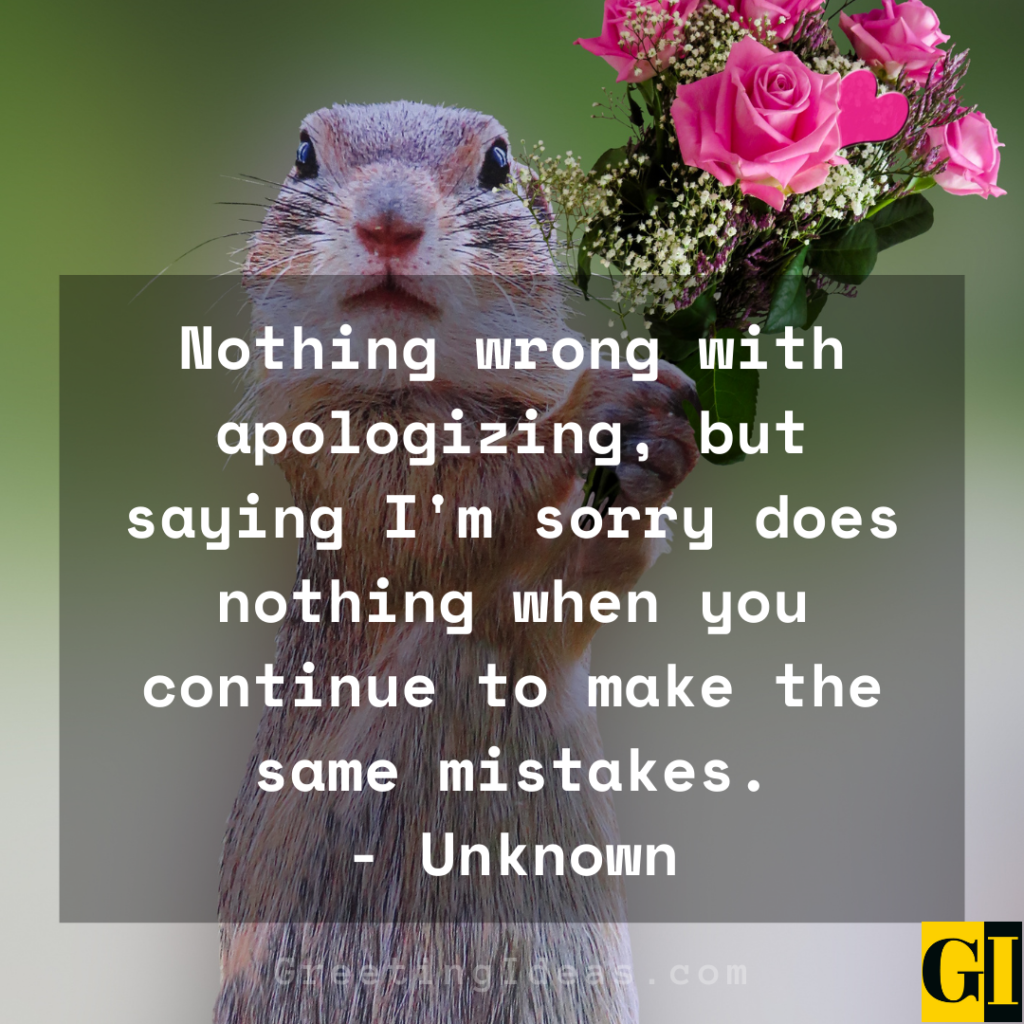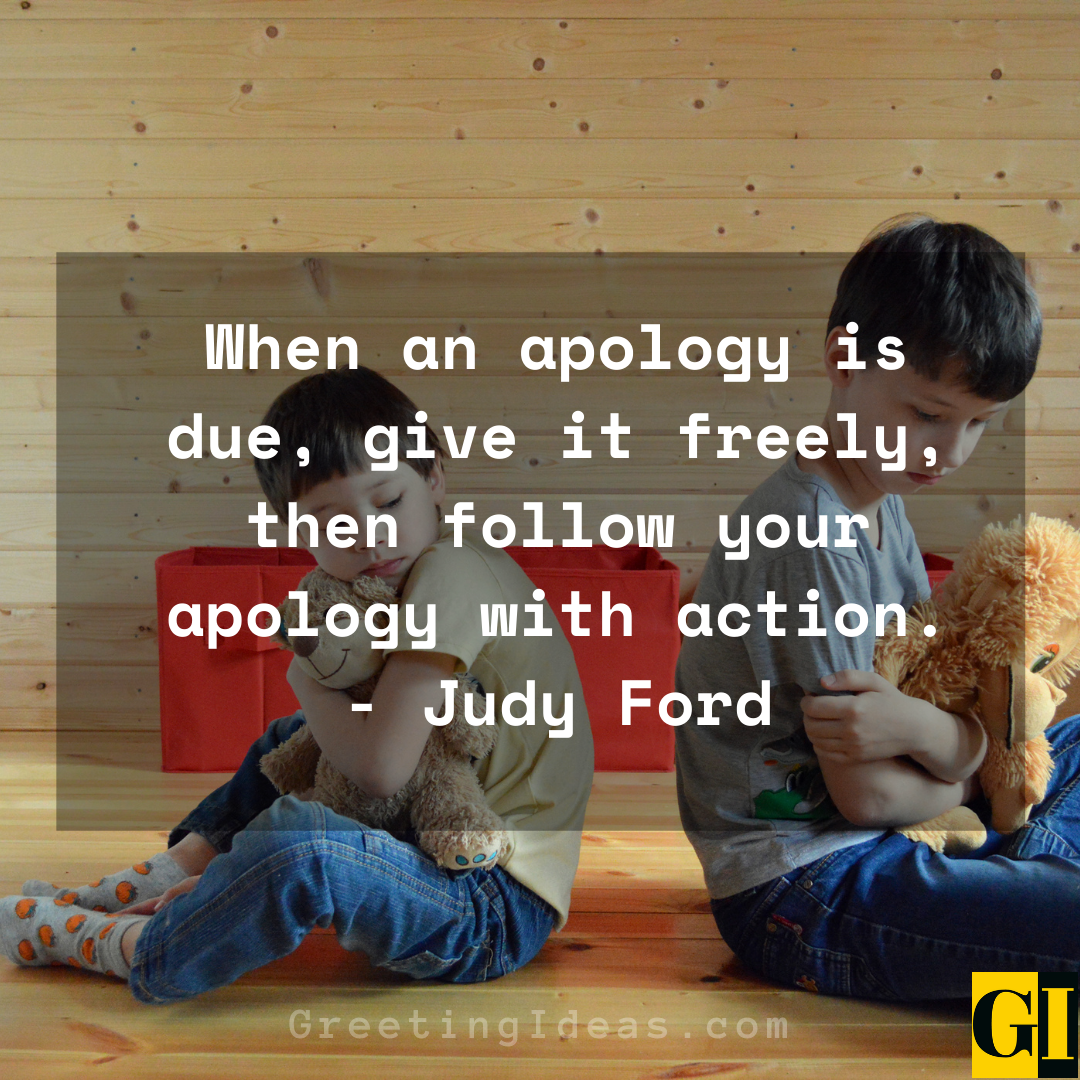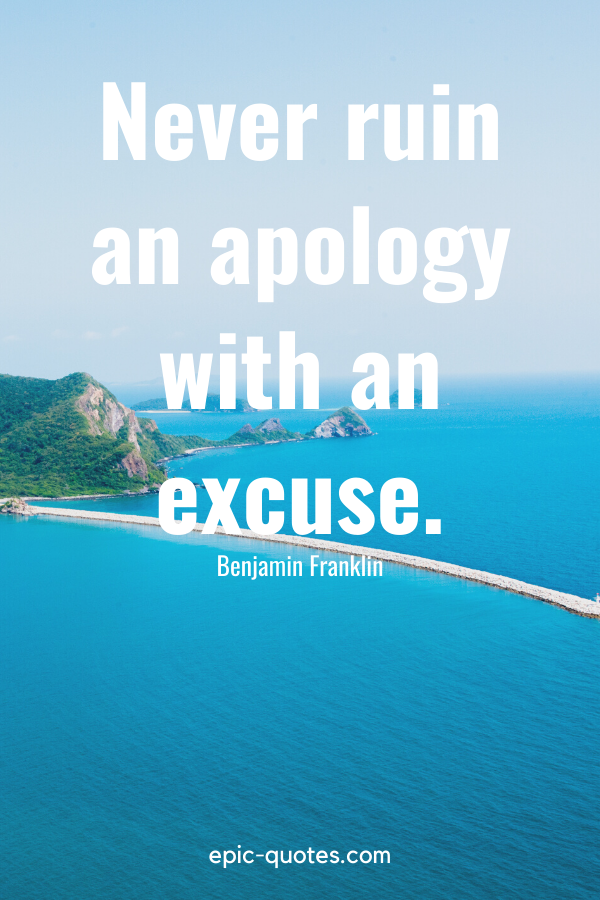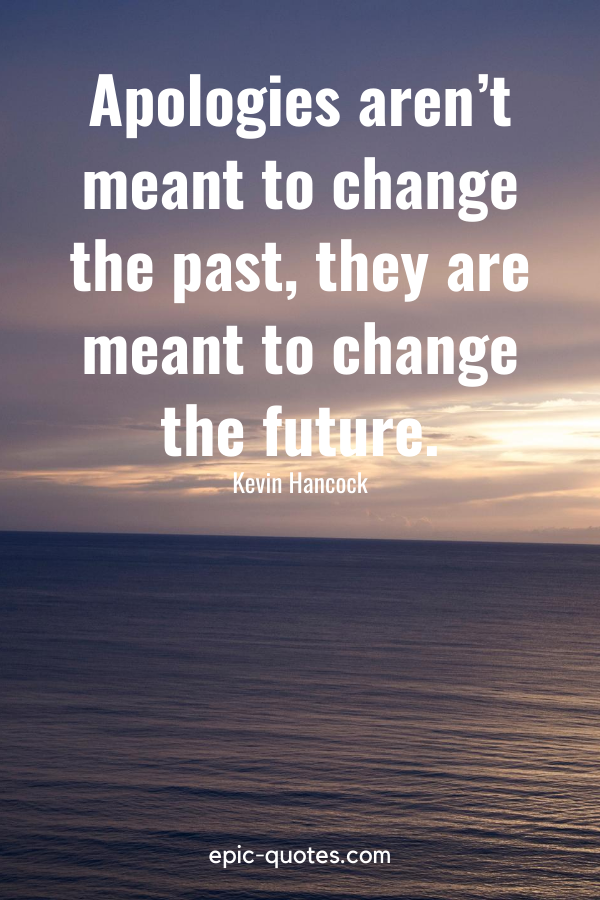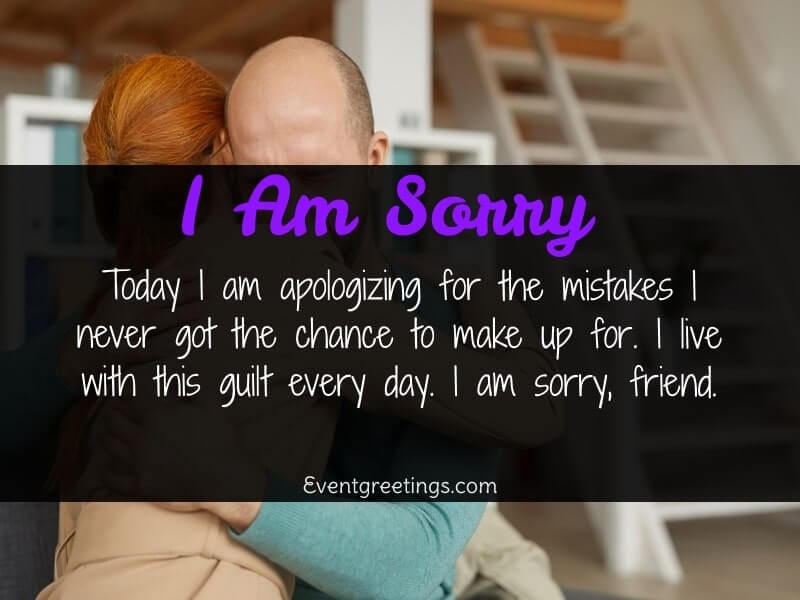Quotes About Apologizing For Your Mistakes

Public figures, business leaders, and everyday individuals are grappling with the weight of their missteps, sparking renewed interest in the art of the sincere apology. Effective apologies are crucial for repairing relationships and rebuilding trust in both personal and professional contexts.
The ability to acknowledge wrongdoing, express remorse, and commit to corrective action is paramount. This article explores the wisdom encapsulated in quotes about apologizing, offering insights into crafting statements that resonate with authenticity and facilitate reconciliation.
The Power of "I'm Sorry"
“The first to apologize is the bravest. The first to forgive is the strongest. The first to forget is the happiest.” This quote emphasizes the transformative power of both apologizing and forgiving.
Unknown authorship highlights the bravery required to admit fault, a sentiment echoed throughout literature and philosophical discourse.
Acknowledging Responsibility
“A stiff apology is a second insult… The injured party does not want to be compensated because he has been wronged; he wants to be healed because he has been hurt.” G.K. Chesterton's observation underscores the importance of genuine remorse.
It's not enough to simply state you're sorry; the apology must demonstrate an understanding of the impact of your actions.
Focus on the hurt caused, not minimizing the wrongdoing. "An apology without change is just manipulation," rightly emphasizes author Unknown, cautioning against empty gestures.
Expressing Remorse
“Apologies require taking full responsibility. No half-truths, no rationalizations, no finger-pointing. If an apology is not full and wholehearted, it is not an apology.” Dr. Phil McGraw stresses the need for complete accountability.
This means avoiding phrases like "I'm sorry if I offended you," which deflects blame.
Instead, take ownership: "I am sorry for what I did. It was wrong, and I take full responsibility."
Committing to Change
"Saying 'I'm sorry' is saying 'I love you' with a wounded heart in your hand." These powerful words by Richelle E. Goodrich, underscores the vulnerability and genuine sentiment involved in sincere apologies.
An apology is only meaningful if accompanied by a commitment to prevent future occurrences. This shows that you have learned from your mistake and are dedicated to making amends.
For example, if you made a mistake at work, you might say, "I am taking steps to ensure this doesn't happen again. I am implementing a new system to double-check my work."
The Importance of Timing and Sincerity
“Never ruin an apology with an excuse.” This quote, attributed to Benjamin Franklin, reminds us that excuses undermine the sincerity of an apology.
Apologizing promptly demonstrates respect for the injured party.
Delaying an apology can exacerbate the situation, leading to further resentment and mistrust.
Moving Forward
The true measure of an apology lies in the subsequent actions. A genuine apology fosters healing and strengthens relationships. The best apology is changed behavior.
Individuals and organizations are encouraged to reflect on these insights to craft more effective apologies.
Resources are available online, including articles and workshops, offering guidance on how to apologize sincerely and effectively in various situations. The process of reflection is an ongoing practice in order to live with authenticity.
